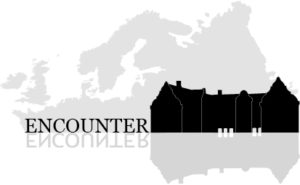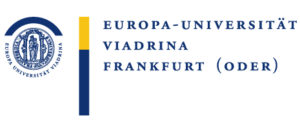 The 4th ENCOUNTER-Conference
The 4th ENCOUNTER-Conference
Managing manorial heritage: scaling and balancing of public and private issues
Organizers:
Hosting Organization: European University Viadrina, Frankfurt/Oder (Germany)
Call For Papers
Date: 05.-07. October 2018
Venue: European University Viadrina, Frankfurt / Oder (Germany)
Scientific Committee: Prof. Arne Bugge Amundsen (University of Oslo), Britta Andersen (The Danish Research Centre for Manorial Studies, Gammel Estrup), Dr. Jonathan Finch (University of York), Dr. Göran Ulväng (Uppsala University), Prof. Ronnes Hanneke (University of Groningen), Prof. Paul Zalewski (European University Viadrina, Frankfurt/Oder)
The conference
The conference is focused on the issues of safeguarding, maintaining and management of manor houses in today`s Europe. The both, the evolutionary socioeconomic changes in the Western as well as the revolutionary turns in the Central and Eastern Europe have contributed to increasing concerns about the role and maintaining of objects, which have originally been built as private land estates of the nobility. These processes have been accelerating over the last decades due to the restructuring of land use and land property. Even urbanization and depopulation have to a different degree been affecting rural regions with their historically grown spatial and built structures. Maintaining the most valuable historic manors and castles has become a more and more challenging task.
At the same time, especially this category of objects is one of the most powerful foundations for all kinds of strategies in tourism planning, or – to express it more broadly – in the spatial development of whole regional entities. Indeed, several leisure, knowledge and experience-oriented developments in the society provide new chances for the manorial heritage.
There is the question how far can we observe an interrelation of both, the soft and of the hard frameworks and factors providing more audience and more capital for the distinguished pieces of rural heritage. As “soft factors” we can name the growing role of the aestheticization and individualization of social life, which in short means an increasing mobility and a search for unstandardized leisure wishes (being away, enjoying historic gardens, etc.). As “hard factors”, we understand the gradual increase of financial involvement due to the creation of touristic infrastructures or creating permanent residences by people who work independently in remote services.
In the framework of the conference the following three levels of object-related actions should be highlighted: On a “macro” level we want to ask to what extent “heritage governance” strategies in different European countries are coming from the top of the planning authorities and putting special emphasis on manors and estates and how do they work? On a “mezzo” level there is the question to what extent the existing manorial attractions can be horizontally interconnected and create a cooperative lobbies and networks with relevant offers for tourism and creative industries. Finally on a “micro” level there is the question how an individual manorial place can be developed and interconnected with the local, regional or supra-regional audiences in a bottom up manner?
According to this multiscalar approach, three conference-sections should be created. Each section can contain few presentations only (20 minutes for presentation + 10 minutes for discussions). Therefore, the excellence of applications as well as the experience of the potential contributors will be relevant for choosing the conference contributions.
Abstracts
Abstracts in English of max. 300 words (references excluded) as well as a brief biographical note with your title and institutional affiliation can be sent to: encounter@europa-uni.de The deadline for abstract submission is May 20, 2018. Notification of acceptance will be sent in early June, 2018.
The selected contributors can be exempted from the conference fee (99 Euro). The organizers are currently applying for additional funding. The contributors will be soon informed about the possibility of reimbursement of their travelling expenses after the selection of abstracts.

